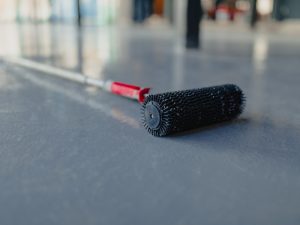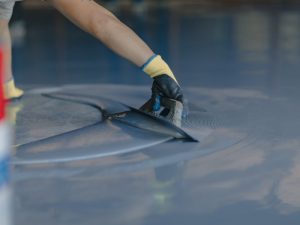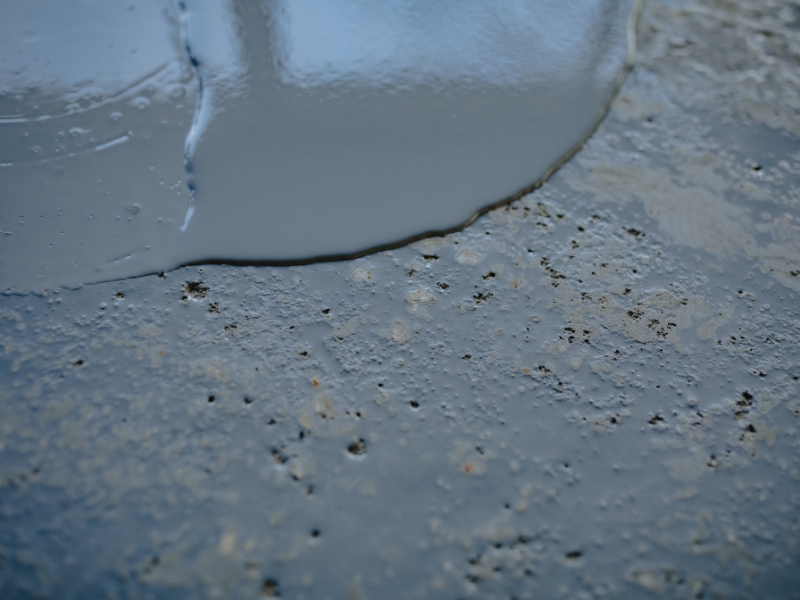Epoxy flooring is a popular choice for both residential and commercial spaces in Sydney, offering durability and a smooth finish. However, when it comes to choosing epoxy floor materials, many people wonder if opting for cheaper options can affect their long-term costs. While the initial price may be tempting, several factors to consider could impact your future expenses. This article will explore how selecting a cheaper epoxy floor might influence the overall cost of maintenance, repairs, and functionality in both residential and commercial settings.
Why is the initial cost of epoxy flooring important when considering long-term savings?
When you’re installing an epoxy floor, the upfront cost plays a big role in your decision-making process. Many people are drawn to cheaper materials because they seem like a more affordable option at first. However, it’s essential to evaluate the bigger picture, as the initial cost can significantly impact your long-term savings.
Here are a few reasons why the initial cost matters:
- Quality of materials: Cheaper epoxy materials often mean lower-quality ingredients, which can lead to quicker wear and tear.
- Durability: Higher-quality epoxy tends to last longer, saving you from frequent repairs or replacements.
- Long-term performance: Investing in quality epoxy can improve resistance to chemicals, stains, and scratches, which will save money in repairs and maintenance over time.
- Maintenance costs: A low-quality epoxy floor might require more frequent cleaning or even refinishing, adding to the total cost over time.
In the long run, paying more upfront for a high-quality epoxy floor might save you money by reducing the need for repairs or replacements. Additionally, before installing epoxy flooring, it’s crucial to understand occupational health and safety guidelines to ensure a safe and compliant environment.
How does choosing a cheaper epoxy floor affect the functionality and safety of a commercial kitchen?
In a commercial kitchen, functionality and safety are crucial. The floor is constantly exposed to high traffic, spills, and the potential for accidents. When you choose a cheaper epoxy floor for a commercial kitchen, there are several factors to consider.
- Slip resistance: Cheaper epoxy floors often lack the right anti-slip properties, increasing the risk of accidents. A high-quality epoxy floor will have better slip resistance, which is especially important in a kitchen where spills are common.
- Chemical resistance: Commercial kitchens are exposed to harsh chemicals like cleaning agents, oils, and grease. Cheaper epoxy floors may not resist these substances as well, leading to stains, discolouration, or surface degradation.
- Ease of cleaning: Low-cost epoxy floors might be harder to clean, allowing bacteria to build up. Higher-quality epoxy flooring often has a smoother surface that’s easier to maintain and disinfect.
What are the risks of using cheaper epoxy flooring in high-traffic commercial kitchens?
Commercial kitchens, particularly those in busy restaurants or industrial settings, experience high foot traffic and heavy-duty use. Using cheaper epoxy flooring in these environments presents several risks:
- Wear and tear: Lower-quality epoxy can wear out more quickly under heavy traffic, leading to visible damage and the need for repairs.
- Peeling or cracking: Cheaper materials may not bond well to the surface, causing peeling or cracking over time. This can be dangerous in high-traffic areas, as these imperfections create tripping hazards.
- Frequent replacements: When you opt for cheaper epoxy flooring, you might find yourself needing to replace or repair it more often. This adds up to higher costs in the long run.

Does cheaper epoxy floor result in higher repair costs over time?
While cheaper epoxy materials may be less expensive upfront, they can result in significantly higher repair costs over time. Here’s why:
- Frequent damage: Low-quality epoxy is more likely to chip, crack, or peel, requiring more frequent repairs.
- Labour costs: Repairing cheaper epoxy floors often takes longer, meaning more labour costs for each maintenance job.
- Additional materials: To extend the life of cheaper epoxy floors, you may need to use extra products, such as sealers or topcoats, which will increase the total cost of maintenance.
- Disruption: Constant repairs can disrupt operations, especially in commercial kitchens or busy workshops, leading to indirect costs like downtime or loss of productivity.
Can investing in higher-quality epoxy flooring for commercial kitchens save you money in the long term?
Yes, investing in higher-quality epoxy flooring for commercial kitchens can save you money over time. While the upfront cost may be higher, the long-term benefits often make it a more cost-effective option. Here’s how:
- Durability: High-quality epoxy floors are more durable, reducing the need for repairs or replacements.
- Better protection: Superior epoxy flooring is resistant to stains, chemicals, and wear, meaning it will last longer without deteriorating.
- Improved safety: With better slip resistance and smoother surfaces, high-quality epoxy flooring reduces the likelihood of accidents, which can result in costly legal claims or insurance premiums.
- Lower maintenance: Higher-end epoxy floors are easier to maintain, saving you time and money on cleaning and upkeep.
What should you consider when balancing costs and quality for epoxy flooring in commercial kitchens?
When deciding on the best epoxy flooring for commercial kitchens, it’s important to strike a balance between cost and quality. Consider the following factors:
- Traffic levels: If your kitchen experiences heavy foot traffic, opting for a higher-quality epoxy floor will ensure it holds up over time.
- Safety requirements: Make sure the epoxy floor meets safety standards, including slip resistance and ease of cleaning.
- Maintenance needs: Consider how much time and money you’re willing to spend on maintenance. A high-quality epoxy floor may need less upkeep in the long run.
- Warranty: Look for a product that comes with a solid warranty. High-quality epoxy flooring often comes with longer warranties, giving you peace of mind in case issues arise.
Balancing quality and cost ensures that you choose the right epoxy floor coating for your kitchen, meeting your needs while keeping long-term costs in check.
How can professional installation help minimise long-term costs, regardless of the material used?
Professional installation is key to ensuring your epoxy flooring lasts as long as possible, regardless of whether you choose a high-end or budget option. Here’s how professional installation can minimise long-term costs:
- Proper surface preparation: Professional installers will ensure the floor is properly prepared before applying the epoxy, helping it bond effectively and last longer.
- Even application: A professional will ensure the epoxy is applied evenly, preventing premature wear in high-traffic areas.

- Correct mixing and curing: Proper mixing and curing of the epoxy ensure optimal performance and durability.
Ready to invest in quality epoxy flooring for your commercial kitchen?
If you’re looking for epoxy flooring that offers long-term value and durability, Sydney Wide Epoxy Flooring can help. We offer expert installation for commercial kitchens, ensuring a high-quality finish that stands the test of time. Get a quote from Sydney Wide Epoxy Flooring to learn more about our epoxy flooring services for commercial kitchens in Sydney!

